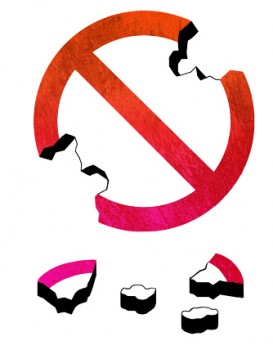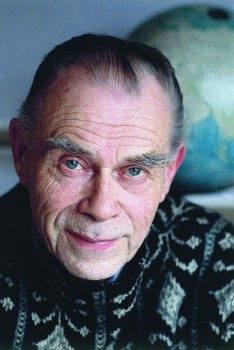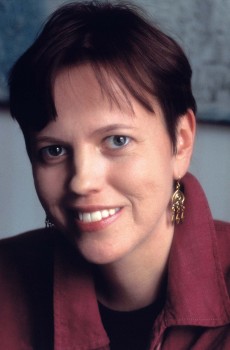Archive for October, 2009
Noah’s progeny
30 October 2009 | Fiction, Prose
Extracts from the novel Puupää (‘Blockhead’, Teos, 2009)
In these ‘shavings’ hewn from the block in constructing the storyline of his new novel, Juha Hurme offers us four unique glimpses into the Finnish psyche
The rune singer of Nokia
Three years ago I purchased a used mobile phone when its predecessor took an overdose of sea water and went mute on a rowing trip in a broken-down loaner of a fibreglass boat in a gale-force nor’wester. This three-year-old phone has been a thoroughly satisfactory implement and indispensable contact link. The power button got stuck a year ago, but the gadget is still fully operational with the aid of a match stick or something similar. It is my belief and hope that it will continue to fulfil the role of telephone for seven more years, because I prefer not to own, let alone purchase, anything that withstands fewer than ten years of use. More…
Teemu Kaskinen: Sinulle, yö [To you, the night]
29 October 2009 | Mini reviews, Reviews
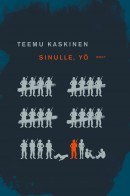 Sinulle, yö
Sinulle, yö
[To you, the night]
Helsinki: WSOY, 2009. 268 p.
ISBN 978-951-0-35599-2
€ 29, hardback
In Teemu Kaskinen’s debut novel, Finland is at war with Norway and its NATO ally the United States. Fierce battles rage in the winter darkness in Lapland, and Helsinki has become the stage for a contemporary war, which seems rather ridiculous – except for the fact that there are neighbouring countries currently at war with each other after having previously coexisted peacefully for ages, and it would be easy to name several thriving cities whose streets have suddenly been filled with soldiers, bomb blasts and terror. In this novel by Kaskinen (born in 1976; he has previously written four plays) the streets and interiors are also filled with lust and the satisfaction of basic needs. In cool, modernistic episodes, the author shows how people’s instincts begin to drag them along in a crisis situation. Sinulle, yö is a grotesque, brutal novel – but then again, what would happen if you, I and the neighbour’s lad ended up in similar circumstances, like those that engulfed Sarajevo not all that long ago?
The next generation
23 October 2009 | Columns, Tales of a journalist
Truth will not out, and neither will humour, if things cannot be freely discussed in the media without fear of giving offence, argues Jyrki Lehtola
One September weekend I was in the city of Turku watching Finland’s first ‘comedy roast’ being taped before a live audience for a television pilot.
Roast is a tradition originating in the US. At its centre is a celebrity guest of honour, the roastee. One after another, well-known comedians take the stage and for several minutes make fun of the guest of honour, on the premise that no subject is out of bounds and the more sensitive the topic, the more arrogantly it must be raised to the fore.
The task of the guest of honour is to be able to laugh at him- or herself as well as at the comedians, and at the end to propose a counter-roast, i.e. insult the insulters. Easy targets like reality TV stars are not chosen but rather prominent figures with extensive careers to their name, people for whom the mockery contains the same mix of respect and warmth as a stag night roast. A roast is a language game in which the most important thing is that everyone, including the audience, understands and accepts the rules. More…
Thrills and spills
23 October 2009 | This 'n' that
In September the comic strip Viivi & Wagner by Juba, number two in August on the list of best-selling books (Mitä Suomi lukee, ‘What Finland reads’ – in Finnish only), gave way to Jari Tervo’s political satire Koljatti (‘Goliath’) and to a new thriller by Ilkka Remes (Isku ytimeen, ‘Strike to the core’).
Number three was Kjell Westö’s novel Älä käy yöhön yksin (in Finnish; the original, Gå inte ensam ut i natten, was published in Swedish, Westö’s mother tongue; ‘Don’t go out into the night alone’) and number four Kari Hotakainen’s novel Ihmisen osa (‘The human condition’).
Numbers eight and nine were new thrillers / crime novels by Leena Lehtolainen and Matti Rönkä. Historical novels by Kaari Utrio and Laila Hirvisaari took the fifth and sixth places.
Not surprisingly, the international bestsellers Paulo Coelho, Henning Mankell, Donna Leon and Patricia Cornwell led the translated fiction list.
As for non-fiction, the doings of Finnish Security Police interests people greatly: a history of it from 1949 to 2009 (edited by Matti Simola), entitled Ratakatu 12 (‘Ratakatu street 12’, WSOY) made its way to the top. It was followed by a biography of the industrial magnate Pekka Herlin of the Kone elevator company, Koneen ruhtinas (‘The prince of Kone’) – and Hitler by Ian Kershaw.
Fair game
23 October 2009 | This 'n' that
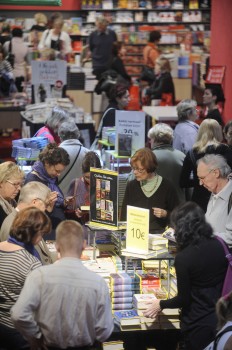
Words for sale: Helsinki Book Fair, 2009. - Photo: Suomen Messut / Kimmo Brandt
The Helsinki Book Fair opened yesterday (22 October), with the theme ‘What’s really happening’, at the Helsinki Exhibition and Convention Centre. Over four days there will be more than a thousand performers (mostly writers and their interviewers) and nearly 300 exhibitors. Last year’s Fair attracted 68,000 visitors.
The words of the theme are borrowed from a 1960s collection of poems (Mitä tapahtuu todella) by Pentti Saarikoski (1937–1983). According to the press release, the theme ‘sums up what literature is about’; moreover, ‘fiction and non-fiction reflect this very day, reinterpreting the past and present glimpses of what is to come’.
What’s really happening, it seems to us, is that inventing catchy titles for commercial purposes is an enterprise that should be undertaken with caution, as it may produce unintentional connotations for the delectation of those in the know… Mitä tapahtuu todella – its title borrowed in turn from none other than the Russian revolutionary Vladimir Ilyich Lenin – was a politically utopian collection in which Saarikoski expressed his belief in dialectical materialism and communism, contrasting American avant-garde art with the Marxist-Leninist utopia in which the writer wished to live.
In recognition of bicentennial 1809, the year in which Finland ceased to be part of the kingdom of Sweden and became an autonomous Grand Duchy of Russia, Sweden is under focus at the Book Fair, and is represented by 27 exhibitors and more than 30 performers. Writers from eight countries in all will visit the Fair, Russia taking part for the first time. Among the visitors are the writers Andrei Astvatsaturov and Herman Sadullajev and the translators Lyudmila Braude ja Anna Sidorova, who were awarded this year’s Finnish Government Prize for Translation.
The Fair is organised by The Finnish Fair Corporation in conjunction with the Finnish Book Publishers Association and the Organisation of the Booksellers Association of Finland.
Jari Tervo: Koljatti [Goliath]
23 October 2009 | Mini reviews, Reviews
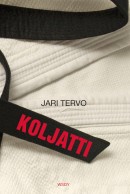 Koljatti
Koljatti
[Goliath]
Helsinki: WSOY, 2009. 317 p.
ISBN 978-951-0-35610-4
25 €, hardback
Jari Tervo (born 1959) writes comic, swiftly paced, linguistically accomplished prose with touches of historicism, philosophy and social commentary. Koljatti is a contemporary satire that prompted a great deal of fuss in the Finnish press for its perceived nastiness: the similarities between its character Pekka Lahnanen, an isolated and beleaguered prime minister, and Matti Vanhanen, the current Finnish Prime Minister, are clear. This novel outlines some crude caricatures, but its critical barbs are aimed not at politics, but rather at the relationship between the media and politics. This book, which describes the events of a single fast-paced weekend, portrays politics as theatre, in which the only thing that matters is how things appear; the media will drop any substantive questions in their relentless pursuit of new sensationalist headlines of politicians’ private lives. The news may not look the same after reading this novel. Tervo is one of Finland’s most popular authors; three of his novels have appeared in translation, in four languages. [Read a short story here.]
Kjell Westö: Gå inte ensam ut i natten [Don’t go out into the night alone]
23 October 2009 | Mini reviews, Reviews
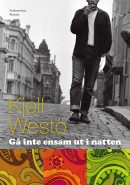 Gå inte ensam ut i natten
Gå inte ensam ut i natten
[Don’t go out into the night alone]
Helsinki: Söderströms, 2009. 604 p.
ISBN 978-951-52-2609-9
25 €, hardback
Finnish translation (by Katriina Savolainen): Älä käy yöhön yksin
Helsinki: Otava, 2009. 604 p.
ISBN 978-951-1-23833-1
25 €, hardback
This novel completes Kjell Westö’s Helsinki series and is his tenth book. As is the case with the three earlier books in this series (Drakarna över Helsingfors [‘The kites over Helsinki’], 1994, Vådan av att vara Skrake [‘The perils of being a Skrake’], 2000, and Där vi en gång gått [‘Where we once walked’], 2006, all also translated into Finnish) this is a character-driven, nostalgia-laden story that spans several decades. The central factor is music: in the 1960s three young people from different backgrounds become friends and record a single that ought to have been a huge hit, but because the song fades into obscurity, the circle of friends breaks up. In the latter part of the novel, a young man begins to investigate what became of the members of the trio and realises that his own life is linked to theirs. Westö (born 1961) writes remarkable experiential prose that brings the reader close to the characters. The retro setting may be a bit much for some: the avalanche of details feels rather excessive in places. Där vi en gång gått was awarded the Finlandia Prize in 2006. Another of Westö’s novels, Lang (2002), was published in England under the same title in 2005.
The height of the night
15 October 2009 | Letter from the Editors
 The autumnal equinox is past; and as we tilt towards the winter solstice, here in these northerly latitudes, the darkness expands palpably from day to day, giving more space for introspection – high on the list of Finnish national pastimes – and for reading.
The autumnal equinox is past; and as we tilt towards the winter solstice, here in these northerly latitudes, the darkness expands palpably from day to day, giving more space for introspection – high on the list of Finnish national pastimes – and for reading.
We want to make our website primarily a place for reading – not, in other words, for clicking, going on to the next thing. To think to the end what cannot be thought to the end elsewhere, as the Russian poet Osip Mandelstam said of his experience of staying in what was, at the turn of the 20th century, still Finnish Karelia. So you will not find our texts littered with links; for the most part, links appear at the end of a piece, not in it. More…
Transcript renewed
15 October 2009 | In the news
 Transcript, the redoubtable internet review of books and writing from around Europe, has a new editor. Francesca Rhydderch’s background as a former editor of the literary journal New Welsh Review will no doubt bring a fresh perspective on Transcript’s declared aim of promoting good literature written in the smaller European languages. Transcript offers wider circulation to material from small-language literary publications by translating them into English, French and German.
Transcript, the redoubtable internet review of books and writing from around Europe, has a new editor. Francesca Rhydderch’s background as a former editor of the literary journal New Welsh Review will no doubt bring a fresh perspective on Transcript’s declared aim of promoting good literature written in the smaller European languages. Transcript offers wider circulation to material from small-language literary publications by translating them into English, French and German.
Thirty issues of Transcript have been published since its inception in 2002. Now, taking a look at them again, we think they should have been dated – it is rather perplexing not to find any dates attached editorials or introductions to what is very contemporary fiction from an area that is in rapid flux. Perhaps the dates could be added now that new editions are to appear, after a longish break?
Transcript is published by Literature Across Frontiers, a European programme for literary exchange and policy debate, with the support of the Culture 2000 programme of the European Union; it operates in partnership with local literature networks.
The Finnish issue was published in 2004, edited by our very own Soila Lehtonen.
Selling best
15 October 2009 | This 'n' that
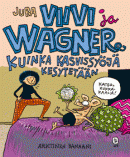 Appearing at number two on the Finnish fiction best-seller in August was part 12 of Juba Tuomola’s Viivi & Wagner comic-strip series, entitled Kuinka kasvissyöjä kesytetään (‘The taming of the vegetarian’, Arktinen Banaani).
Appearing at number two on the Finnish fiction best-seller in August was part 12 of Juba Tuomola’s Viivi & Wagner comic-strip series, entitled Kuinka kasvissyöjä kesytetään (‘The taming of the vegetarian’, Arktinen Banaani).
With its hero, the (literal) chauvinist pig Wagner and his (human) girlfriend Viivi, the series has long been immensely popular in Finland but, unaccountably, the mixed-species duo hasn’t yet made its international breakthrough… As we wait for Viivi and Wagner to conquer the world, here’s a sneak preview (sorry, no English subtitles on the web page of the Helsingin Sanomat newspaper where the daily strip is reprinted!). More…
In other words
15 October 2009 | In the news
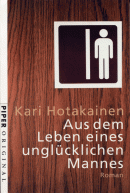
Top of the list: German translations of Finnish books, including Kari Hotakainen's Juoksuhaudantie ('Trench Road')
According to statistics, last year 204 Finnish books were published in 53 foreign languages. The 2008 list of translations of Finnish books into other languages has German at its head: 29 new translations appeared last year, 19 of them fiction. The list is compiled by the Finnish Literature Exchange (FILI) and the library of the Finnish Literature Society (SKS).
Second on the list is Russian, with 20 entries. Then come Estonian (17 titles, of which 11 are non-fiction), French, Polish, Japanese, Swedish and English. Finnish books for children and young people have been especially popular in Russia (ten titles published) and Japan (seven) last year.
The last three languages on the list of 53 are Croatian, Georgian and Hindi – with two Finnish graphic novels each.
We shall be featuring a small selection of Finnish books published in translation here. The Finnish Literature Society database lists all translations of Finnish titles and provides various search options for both authors and books.
Writing and power
15 October 2009 | This 'n' that
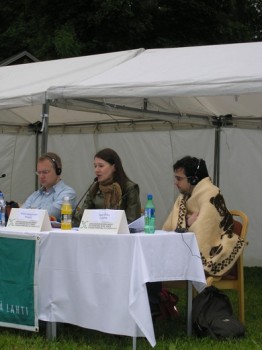
Speaking in the cold: the Chairperson of the Lahti Writers' Union, Jarmo Papinniemi (left), and the Bosnian writer Igor Štiks (right) listen to Riina Katajavuori's presentation
The theme of the biannual International Writers’ Reunion (LIWRE) which took place in Lahti, southern Finland, in June for the 24th time, was ‘In other words’.
The theme inspired the participants (54 in total, foreign and Finnish) to talk, among other things, about the power of the written word in strictly controlled regimes, about fiction that retells human history, about the difference between the language of men and women, about languages that have been considered – by those who rule, naturally – ‘better’ than other languages. Eleven presentations are available in English.
Speaking about the birth of her latest collection of poems, Kerttu ja Hannu (‘Gretel and Hansel’, 2007), the Finnish writer Riina Katajavuori described in her presentation the need to use other words. In her case they were those of poetry, in retelling a tale; here are some extracts (scroll down!). More…
A long dream
9 October 2009 | Fiction, Prose
A short story from Jälkikasvu (‘Offspring’, Otava, 2009)
‘I was eating a late breakfast, without a care in the world, when it happened.’
He snaps off the recorder. He has said the same thing three times now, but he always loses his train of thought right there. Why is it so difficult to continue? In his mind, the next part feels quite clear, but the words simply won’t come out of his mouth. He ought to say that his wife left him yesterday, on the twelfth of February, at 10:48 AM, following a three-minute fifteen-second briefing. More…


